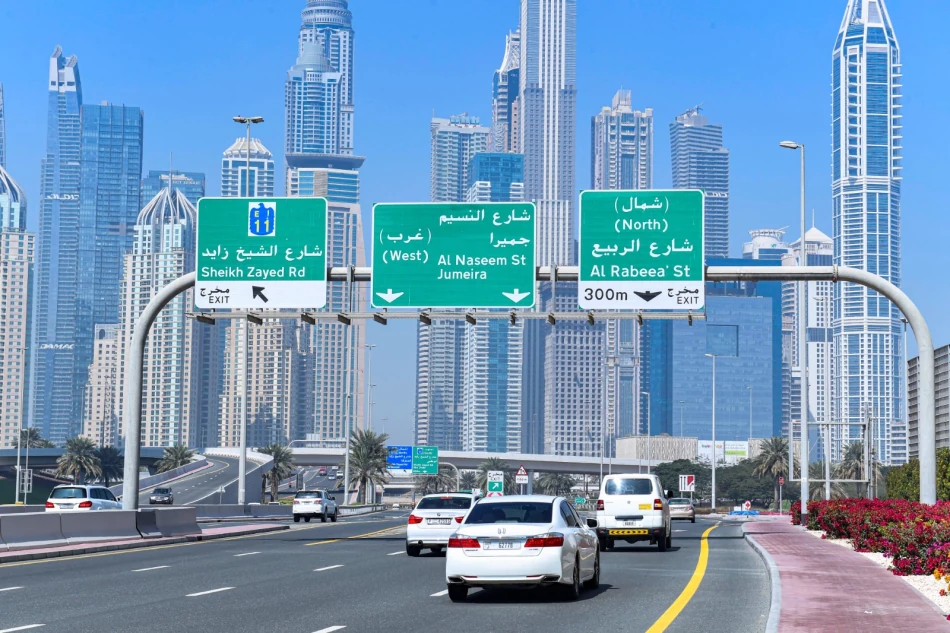
Groundbreaking Digital Platform Unveiled by Dubai Roads to Enhance Traffic Monitoring and Analysis
Dubai Transforms Traffic Management with AI-Powered Platform That Cuts Analysis Time from Weeks to Minutes
Dubai's Roads and Transport Authority (RTA) has launched "Data Drive – Clear Guide," a revolutionary AI-powered platform that analyzes five years of historical traffic data alongside real-time information to transform how the emirate manages its road networks. The system represents a dramatic shift from manual data collection that previously took weeks to instant analysis delivered in minutes, positioning Dubai at the forefront of smart city traffic management globally.
From Manual Reports to Instant Intelligence
The platform marks a fundamental departure from traditional traffic management approaches. Previously, Dubai's traffic authorities relied on manual data collection from consultants, field teams, and handwritten reports based on traffic variables—a process that could take several weeks to complete. The new system delivers the same comprehensive analysis in real-time, providing immediate insights into traffic patterns, congestion points, speed variations, and road conditions across the emirate.
This technological leap leverages massive datasets from specialized international companies, processed through intelligent analysis tools to create precise, instantaneous traffic portraits. The platform monitors historical patterns over five years while simultaneously tracking current conditions, enabling authorities to identify recurring congestion patterns, unexpected slowdowns, and optimal traffic flow periods.
Strategic Positioning in the Global Smart City Race
Dubai's move aligns with its ambitious goal to become the world's smartest city, but it also reflects broader competition among global financial hubs. Singapore has pioneered similar AI-driven traffic systems, while cities like Barcelona and Amsterdam have implemented comprehensive smart mobility platforms. However, Dubai's integration of five years of historical data with real-time analysis appears more comprehensive than many existing systems.
The timing is particularly strategic as Dubai continues expanding its infrastructure ahead of Expo legacy projects and growing tourism numbers. The platform's ability to provide instant notifications about traffic conditions supports rapid decision-making for daily variables—crucial for a city that hosts millions of visitors annually and serves as a regional business hub.
Technology Infrastructure and Capabilities
Real-Time Monitoring and Response
The platform features an interactive map displaying live road conditions, allowing users to select specific geographic areas or streets for detailed analysis. Key indicators include average speeds, traffic density, and journey times—metrics that enable precise traffic management decisions.
For major events and road diversions, the system provides instant monitoring of traffic rerouting performance, enabling rapid intervention and appropriate measures to minimize delays. This capability is particularly valuable for Dubai's frequent international events, construction projects, and seasonal tourism fluctuations.
Automated Reporting and Project Assessment
Perhaps most significantly for urban planners, the platform automatically generates reports evaluating traffic conditions before and after road construction projects. This feature provides concrete data on project effectiveness, supporting evidence-based decision-making for future infrastructure investments.
Implications for Urban Development and Investment
The platform's comprehensive data analysis capabilities offer substantial value for real estate developers, logistics companies, and businesses dependent on efficient transportation networks. Property developers can now access precise traffic flow data when planning new projects, while logistics firms can optimize delivery routes based on historical and real-time traffic patterns.
For government planning, the system's ability to identify recurring traffic patterns and evaluate infrastructure project effectiveness provides a foundation for more strategic urban development. This data-driven approach could significantly improve return on investment for Dubai's substantial infrastructure spending.
Looking Toward Autonomous Transportation
The RTA positions this platform as part of a broader autonomous driving ecosystem, suggesting Dubai's preparation for self-driving vehicle integration. The comprehensive traffic data and real-time analysis capabilities would be essential infrastructure for autonomous vehicle networks, potentially giving Dubai an advantage in attracting autonomous transportation companies and related investments.
This integrated approach—combining historical analysis, real-time monitoring, and future autonomous vehicle preparation—demonstrates how Dubai is building layered smart city infrastructure rather than implementing isolated technological solutions. The platform represents not just traffic management improvement, but foundational infrastructure for the next generation of urban mobility.
Most Viewed News

 Sara Khaled
Sara Khaled






